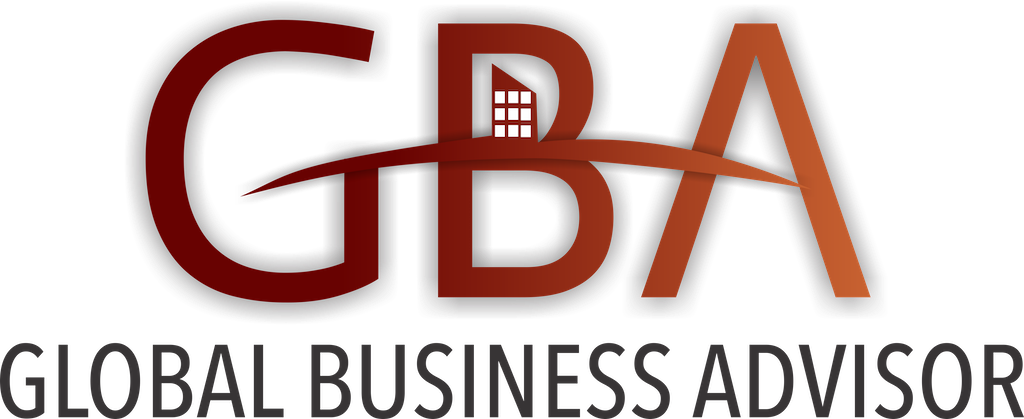Management of Portfolios (MoP) provides advice and examples of how to apply principles, practices, and techniques that together enable the most effective balance of organisational change and business as usual.

Management of Portfolios (MoP) provides advice and examples of how to apply principles, practices, and techniques that together enable the most effective balance of organisational change and business as usual.
Delivered by fully accredited trainers and industry leading experts with extensive experience of portfolio management, the course engages with the students to ensure that theory is embedded and delegates feel confident in the practical application of MoP.
Target Audience
The MoP Practitioner qualification is aimed at those involved in a range of formal and informal portfolio management roles encompassing investment decision making, project and programme delivery, and benefits realisation. It is relevant to all those involved in the selection and delivery of business change initiatives including:
Members of management boards and Directors of Change
Senior Responsible Owners (SROs)
Portfolio, Programme, Project, Business Change, and Benefits Managers
Business Case writers and project appraisers.
Prerequisites
A successful Practitioner delegate should be able to apply and understand how to tailor MoP effectively. And, with suitable support, be able to advise on the implementation of appropriate practices, techniques, and apply the method to a live portfolio. Specifically candidates should be able to demonstrate their ability to:
Define the business case to get senior management approval for portfolio management
Plan the implementation of portfolio management
Select and adapt MoP principles, practices and techniques to suit different organisational environments
Evaluate examples of MoP information (including documents and role descriptions)
Analyze the solutions adopted in relation to a given scenario
Additional work will be required during evenings consisting of consolidation reading and a mock examination. This evening work is an integral part of the course and delegates should expect to spend 2 hours each evening on these activities.
Proof of identification
If taking an exam, candidates are required to provide Photo ID with a valid signature e.g. driving license, passport or named work ID badges prior to sitting their exam.
Failure to produce this ID will result in their exam results being withheld until proof of ID is provided. Please note that if proof is not provided within 40 days, candidate's exam results will be null and void and a re-sit would be required.
Reasonable Adjustments Policy
The exam provider allows additional time for candidates who have a disability or whose native language differs to that of the examination paper.At least two weeks' notice will be required for processing this request. Delegates failing to advise QA and provide evidence when requested, may not be allowed the additional support offered via the policy.
Course material
Learners undertaking this course will be provided with an eBook of the official course manual to support their learning, instructions on how to access the eBook will be provided with the course joining instructions.
Please note: For open book exams learners are permitted to use a second device to access the official course manual, the use of dual monitors is not permitted during the exam.
Please ensure you bring a device such as a mobile phone, tablet or laptop to be able to load your course material on to as you may need this for use in the evenings.
Learning Outcomes
The objective of the course is to prepare students for both the MoP Foundation and Practitioner level examinations. To confirm understanding of the MoP principles, cycles, practices, techniques, roles and documentation.
This will enable them to work as an informed member of a Portfolio Office or in a range of Portfolio Management roles. Specifically they will know and understand the:
Scope and objectives of portfolio management and how it differs from programme and project management
Benefits from applying portfolio management
Context within which it operates
Principles upon which successful portfolio management is based
Approaches to implementation, the factors to consider in maintaining progress, and how to assess the success of portfolio management
Purposes of the portfolio management definition and delivery cycles and their component practices, and relevant techniques applicable to each practice
Purpose and key content of the major portfolio documents
Scope of key portfolio management roles
Course Outline
Module 1 Overview
The definitions of portfolio and portfolio management
The portfolio management model and the relationship between the principles, cycles, practices and relevant techniques
The differences between portfolios and portfolio management on the one hand, and projects/project management and programmes/programme management on the other
The local circumstances that will affect how the MoP principles and practices will be adapted and how cost effective approaches can be adopted
The objectives and benefits of portfolio management
Module 2 Implement, sustain and measure
The three broad approaches to implementing portfolio management; when each approach to implementation is most relevant, the advantages of planned approaches to implementation
The benefits of assessing the impact of portfolio management
Seven steps (and their benefits) in a staged implementation of portfolio management
The factors to consider in sustaining progress
Approaches to assessing portfolio management maturity
Module 3 Strategic and organizational context
The 6 key functions/activities that portfolio management needs to coordinate with to achieve strategic objectives
Identify how portfolio management can:
Coordinate with Business As Usual, strategic planning, resource allocation and budgeting, project and programme management, performance management to deliver strategic objectives
Support effective corporate governance
Module 4 Portfolio management principles
The 5 principles upon which effective portfolio management is based
Senior management commitment
Governance alignment
Strategy alignment
Portfolio office
Energised change culture
Module 5 Portfolio definition cycle
The portfolio definition practices:
Understand
Categorize
Prioritize
Balance
Plan
Understand the terms and concepts relating to the portfolio definition cycle.
The techniques of:
Three point estimating and reference class forecasting
Driver-based strategic contribution analysis
Multi-criteria analysis
Decision conferencing
Clear line of sight
What is involved and the keys to success.
Module 6 Portfolio delivery cycle
The portfolio delivery practices:
Management control
Benefits management
Financial management
Risk management
Stakeholder engagement
Organizational governance
Resource management
The techniques of:
Management by exception
One version of the truth
Staged release of funding
Clear line of sight reporting
Champion-challenger model
What is involved, the main elements, and keys to success.
Module 7 Roles and documentation
The purposes and responsibilities of the main portfolio management roles identified in MoP
The purposes of the main portfolio management documentation
Module 8 Practitioner Examination Overview
An overview of the MoP Practitioner exam - length, number and type of questions, etc
Module 9 Implement, sustain and measure
Identify appropriate approaches when implementing, sustaining, and measuring portfolio management for a given scenario
Analyse whether recommended approaches to implementing, sustaining, and measuring portfolio management have been undertaken appropriately in the context of a given scenario, with reasons
Module 10 Portfolio definition cycle
Apply and tailor the practices and techniques of the portfolio definition cycle to a scenario
Identify appropriate practices and techniques within the portfolio definition cycle
Identify, analyse and distinguish between appropriate and inappropriate application of portfolio definition practices and techniques to a scenario
Module 11 Portfolio delivery cycle
Apply and tailor the practices, techniques and responsibilities of the portfolio delivery cycle to a scenario
Identify appropriate practices and techniques within the portfolio delivery cycle
Identify, analyse and distinguish between appropriate and inappropriate application of portfolio delivery practices to a scenario
Analyse whether the approaches adopted are appropriate, with reasons, in a given scenario
Module 12 Roles and documentation
Apply and tailor MoP to a scenario.
Identify appropriate application of the main portfolio management roles identified in MoP
Identify, analyse and distinguish between appropriate and inappropriate application of the syllabus area to a scenario.
Analyse whether, the specified roles have been involved appropriately, with reasons
Identify appropriate information, using typical contents, for inclusion in the relevant portfolio documentation
Analyse whether the portfolio documentation is fit for purpose, with reason
Examinations
The MoP Foundation exam consists of:
50 multiple choice questions
40 minutes
Closed-book
Candidates require a minimum of 25 correct answers (50%) to pass.
The MoP practitioner exam consists of:
80 multiple choice questions
3 hours
open-book
Candidates require a minimum of 40 correct answers (50%) to pass.
PeopleCert exams take place remotely via PeopleCert Online Proctoring, and the afternoon of the third and last day of your course will continue with your learning until approximately 4.00pm.
When booking your exam please ensure that it is for a time after the course has concluded and at a time convenient for you. You will be required to download and install ExamShield and conduct a compatibility test prior to sitting the exam.
QA delivers training, apprenticeships and tech skills to UK companies large and small. We believe everything starts with our learners – transforming their careers, and their lives, is what motivates us.
We are specialists in technology – providing a comprehensive suite of talent and training services helping individuals and companies to be winners in the digital revolution.
More than 439,000 people learned with QA in 2022. We deliver services to over 3,500 organisations, representing a significant portion of the FTSE 250.
We have leading practices in agile, cyber security, cloud and DevOps – as well as many other technology specialisms. In addition, our deep-rooted vendor partnerships mean that we deliver 70% of the UK’s cloud training and are a Microsoft Gold delivery partner.
We specialise in the people side of technology transformation – our training programmes help businesses to upskill or reskill their existing employees and our talent services are used to identify, recruit and skill-up diverse technology talent.
We acquired Cloud Academy in 2019, expanding our reach into the US. Cloud Academy is a leading digital training platform, featuring guided learning paths, hands-on labs and skill assessments.
The platform supports not just our clients and their learners but also our apprentices and consultants on their skills journey, ensuring learning extends beyond the classroom and is embedded in developing workplace skills.
We are passionate about progress because we can see the bigger picture. Plotting the road ahead. Pushing the boundaries of learning. Powering potential.

Our course will explain financial terms and budgeting tools in such a way where a financial professional or even a non-financial profession will be able to understand and relate with in their working environment

The effective management of projects is an essential skill in many workplaces. Correct control of stages and different aspects of projects helps to increase the chances of projects being successful.

Project Management plays a important role in a variety of industries and fields, such as software development, engineering, construction, marketing, research, IT operations, and more.

Public finance management and Public Sector budgeting play a fundamental role in balancing the social and economic objectives of the state and acts as a significant determinant of macro-economic performance.

This course will provides a chance to delegates to form Project management connected product that may be use within the comes.
© 2025 coursetakers.com All Rights Reserved. Terms and Conditions of use | Privacy Policy